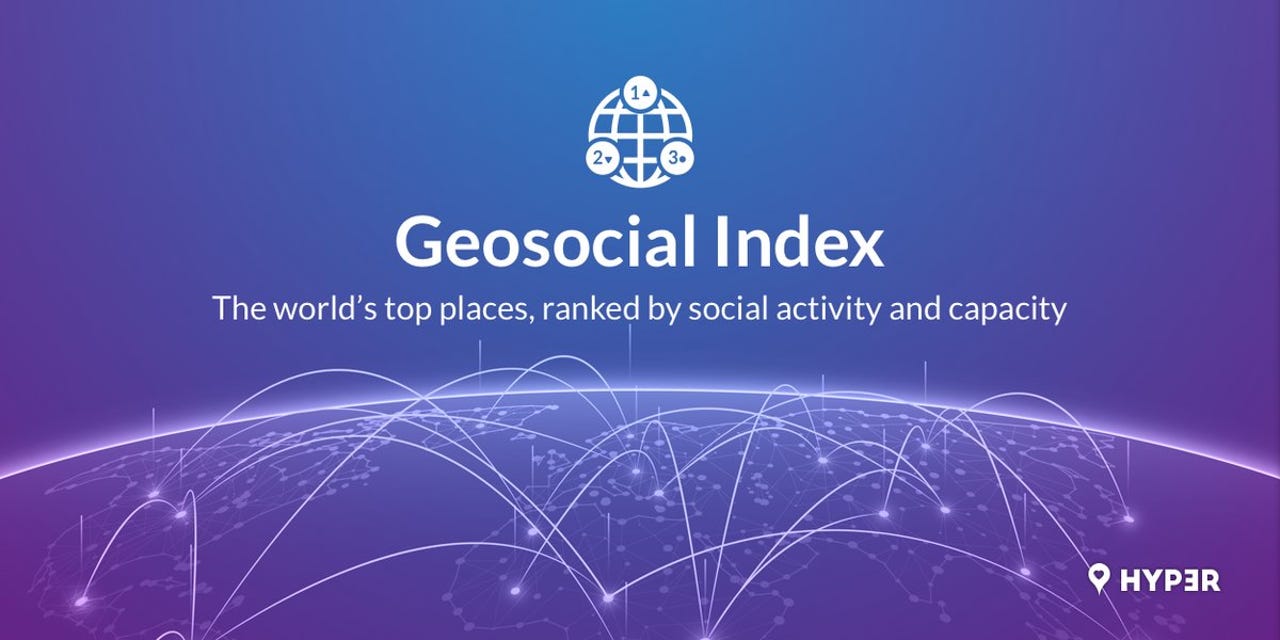HYP3R's Geosocial Index creates a league table for landmarks


HYP3R has created popularity tables for hotels, stadiums and hospitals on its Geosocial Index website, and it's preparing to extend coverage to airports, theme parks and notable landmarks. The company says it's like a Klout score for places rather than people. That gives companies a way to measure their popularity, and data they can use for marketing purposes.
It's a long time since Foursquare gamified the process of checking into specific locations. Some smartphone users may even remember rivals such as Loopt, Brightkite, Gowalla and perhaps Dodgeball, if only because it was bought by and died at the hands of Google.
According to the hype that flourished almost a decade ago, geosocial applications were going to transform marketing. Companies would be able to target you with special offers when you were nearby (get a free beer with lunch, etc), and your friends would flock to join you. Instead, the whole idea of location tracking started to feel creepy, and eventually, sane people lost interest in being "mayor" of their local Starbucks.
HYP3R's approach is different from Foursquare's. It mines social media posts for location data and tots up the scores. The result is a set of league tables. At the moment, for example, the Orlando World Center Marriott is the top hotel while Boston's Fenway Park is beating the Yankee Stadium in New York. The Providence Saint Joseph Medical Center in Burbank, California, is the top-ranked hospital. Smaller venues can compete because capacity is taken into account.
In its marketing (PDF), HYP3R says: "We see a unique opportunity for this data to inform consumers' decisions, and for businesses to benchmark social activity to compare locations within their portfolio and across their industry."
Part of the idea is that you can use geosocial data to interact with users by, for example, replying to their Twitter and Facebook posts. Companies can "surprise and delight on-site engagement," says HYP3R. If they're not careful, however, they can also revive the "creep factor".
Either way, the new geosocial rankings are just a public manifestation of work that HYP3R has been doing behind the scenes. The company was a "Disney Accelerator" start-up and Disney has been using the data in its theme parks. Marriott has used it in around 4,500 hotels world-wide. HYP3R has also signed up some pro sports teams and stadiums, and won an NFL 1st & Future award last year. Pepsi is another major client.
There's certainly a market for geosocial data, and it's a market that Foursquare has been targeting under its new CEO, Jeff Glueck, who replaced founder Dennis Crowley in January 2016. Worldwide check-ins by its 50 million users enable Foursquare to map the world in detail, and make predictions based on analyzing "big data".
For example, according to CBS News (Foursquare CEO on mapping the world, trend by trend), Foursquare data predicted a decline in Chipotle sales before the chain released its financial results, and it revealed a decline in US tourism following Donald Trump's election. The company also looked to see "how the legalization of marijuana in certain states is affecting liquor sales".
Glueck says that 50 of the 100 biggest advertisers now use Foursquare's data services, along with 100,000 tech companies including Apple, Microsoft, Samsung, Snapchat, Twitter and Uber. "Everyone who's not Facebook and Google is pretty much using our platform," Glueck told Cramer's Mad Money on CNBC on May 19.
There are, of course, many other companies analyzing location information derived from social media posts. Examples include WeLink, Snaptrends, and MomentFeed. Whether HYP3R can build a viable business in competition with WeLink, Foursquare and the rest remains to be seen. But I expect it will depend more on its data analytics than on giving Klout-style scores to Big Ben, the Statue of Liberty and the Golden Gate Bridge.
Foursquare has revealed that US tourism has fallen since Donald Trump's election, using data based on check-ins by its global user base. See Jeff Glueck's Coming to America? for the full story.